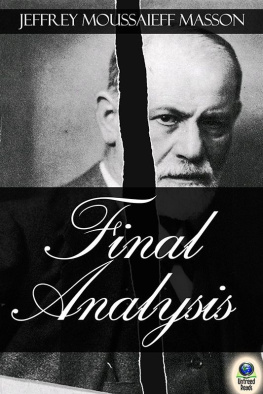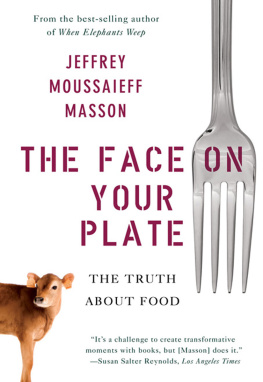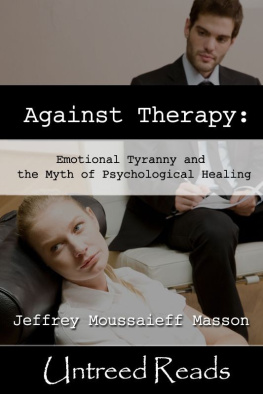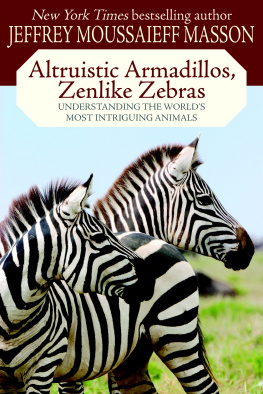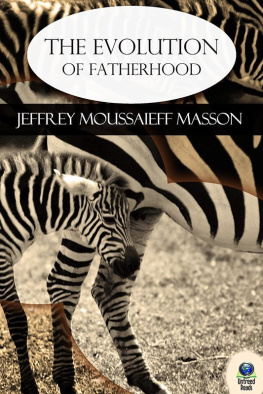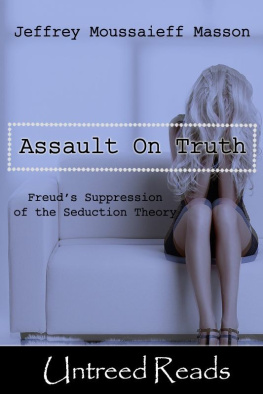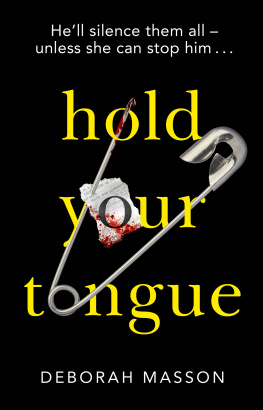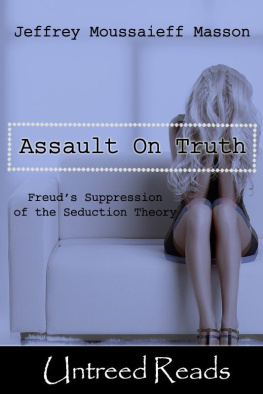
Table of Contents
Final Analysis
By Jeffrey Moussaieff Masson
Copyright 2012 by Jeffrey Moussaieff Masson
Cover Copyright 2012 by Ginny Glass and Untreed Reads Publishing
The author is hereby established as the sole holder of the copyright. Either the publisher (Untreed Reads) or author may enforce copyrights to the fullest extent.
Previously published in print, 1990.
This ebook is licensed for your personal enjoyment only. This ebook may not be resold, reproduced or transmitted by any means in any form or given away to other people without specific permission from the author and/or publisher. If you would like to share this book with another person, please purchase an additional copy for each person you share it with. If youre reading this book and did not purchase it, or it was not purchased for your use only, then please return to your ebook retailer and purchase your own copy. Thank you for respecting the hard work of this author.
While the author has made every effort to provide accurate telephone numbers and Internet addresses at the time of publication, neither the publisher nor the author assumes any responsibility for errors, or for changes that occur after publication. Further, the Publisher does not have any control over and does not assume any responsibility for author or third-party websites or their content.
Also by Jeffrey Moussaieff Masson and Untreed Reads Publishing
Against Therapy
Raising the Peaceable Kingdom
The Assault on Truth
The Cat Who Came in from the Cold
http://www.untreedreads.com
More praise for Jeffrey Moussaieff Masson and Final Analysis
For all the light Masson sheds once again on the Freudians, this is most of all a fascinating and highly unusual kind of autobiographya truthful account of the subjects own professional traininga side of life we hardly ever hear about.
KATE MILLETT
Even if only a fraction of psychoanalysts and analysands have suffered experience quite so gross as that revealed by Jeffrey Masson, his candid and fascinating account of his unique trajectory through the world of psychoanalysis should cause widespread soul-searching on the real value of years spent on or behind the couch.
DOUG ELLSBERG
A powerful volume whichalong with his other booksmust be read by all mental-health professionals because of Massons passionate insistence that we confront the social realities, the value systems, and the arbitrary abuse of power in actual life.
DR. MARGARET BRENMAN GIBSON
Clinical professor of psychology at Harvard Medical School
Dr. Masson, once the wunderkind of psychoanalysis, tells the inside story of that most pretentious of cults from the unique perspective of one who spent five years on his back on the couch-altar. Final Analysis delivers a lethal injection of skepticism not only to the moribund body of Freudian folklore, but generically to the booming business of mind therapy.
JOHN FRIEDBERG, M.D.
Author of Shock Treatment Is Not Good for the Brain
Final Analysis
The Making and Unmaking of a Psychoanalyst
Jeffrey Moussaieff Masson
For Terri
Acknowledgments
My father and mother read through the manuscript of this book and approved of its publication. I wish to thank the following people who read the manuscript and offered various suggestions: Paula Caplan, Robert Goldman, Sally Sutherland, Terri Masson, John Friedberg, Tim Benneke, Bess Davoran, and Daidie Donnelley, to whom the book is dedicated. As with all the books I have written since 1980, Marianne Loring has been my constant helper, offering me her critical judgment and her splendid levelheadedness.
I especially want to acknowledge the collaboration of my editor, Nancy Miller. She was the editor for my first book, The Assault on Truth , and was practically a coauthor of both that book and the present one. She has read every word over and over, making innumerable suggestions, always with intelligence, tact, and good sense. I have been immensely fortunate to have her as an editor and friend.
I wish also to thank Jane Isay, who showed considerable courage in publishing this book and has been a source of encouragement and inspiration.
Preface
In 1971, more than anything else I wanted to become a psychoanalyst. For the next seven years, in analysis and analytic training, I talked, read, and breathed psychoanalysis.
Final Analysis is the story of my psychoanalytic training; of my friendships with Anna Freud, Kurt Eissler and others, and of why I eventually left that world. If this were just my personal story, I doubt it would be worth telling. But the injustices and corruption I encountered as a psychoanalytic candidate were built into the very training process; the implications, I believe, reach out to every analysis and beyond that to psychotherapy in general. I was not the only person to notice these abuses, but by the time training was over, few of us had escaped the acculturation that made them, from the safe distance of graduation, seem necessary or even normal.
No book has yet told what it is like to undergo training as an orthodox Freudian psychoanalyst. Nor does any book tell what it is like to leave that profitable and prestigious professionthose who have been part of the inner circle of psychoanalysis either do not leave, or have left in discreet silence. Thus, until now it has been almost impossible to get an internal view of the workings of this mens club with its initiation rites; expectations of membership loyalty over truth; pressures to accept concepts handed down by the leader, no matter how irrational; xenophobic banding together against outsiders; and the punishment of anyone who poses questions or finally wants out. It is worth asking why no book like this has appeared before, since people have written accounts of leaving almost every other cult. Why has psychoanalysis cast such an impervious net around those who become attracted to it and then train in it?
I cannot say that I undertook this book without reluctance. I hesitated for three reasons. First, there was my personal pain in reviewing events that were hurtful to me when they happened. It is sometimes alarming for me to look back at my own ignorance, naivet, or sheer blindness. I have winced many times in recollecting things I said and did during this period. George Orwell once said that nobody could ever write a truthful autobiography because the truth would always be too unbearably humiliating. Much of what I have remembered and written about here wounds my sense of who I would like to be.
My second reason for hesitating was that while I might be able to justify exposing myself to the ridicule, contempt, or mere head shaking of an anonymous public, I was not certain that I had the right to expose others who were close to me. Yet there seemed no way for me to write truthfully without doing so. All of the people I have in mind (for example, my mother, my father, my ex-wife) have read the book in manuscript, and while they were not in each instance delighted to find themselves in print in this manner, nobody objected or asked to have passages deleted.
Finally, I was daunted by the problem of accuracy. As an academic I had learned to rely on documents, and felt secure in their use. But now I was forced to fall back on my own memory. How accurate was it? Who can recall, exactly, conversations that took place years in the past? Fortunately, for some of the conversations in this book, including sessions with my analyst, I have notes made immediately afterward. But where I have had to rely on my memory and reconstruct conversations, I have tried to ensure that the words I ascribe to others are authentic by searching out original articles written by those I quote. In a few cases, I used published articles by the people cited to provide quoted text with ideas similar to those expressed at the time. While I am convinced that the dialogues are as true to the spirit of the actual conversations as memory permits, I cannot suggest that they should be regarded as verbatim.
Next page
